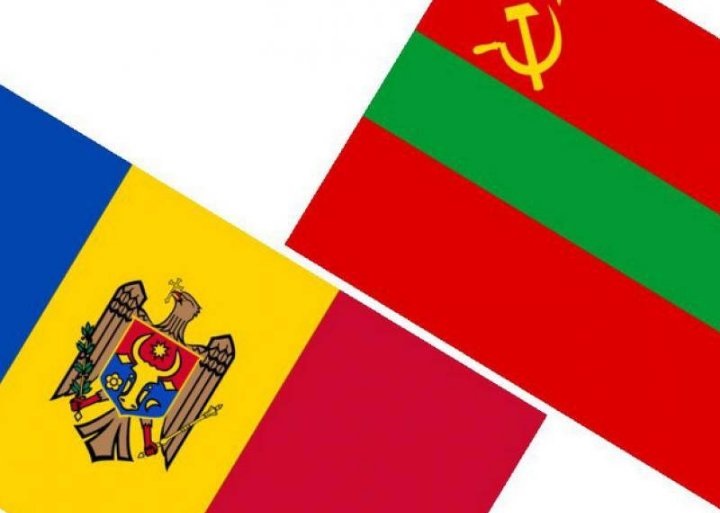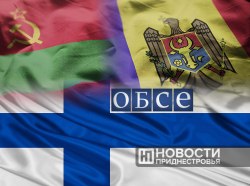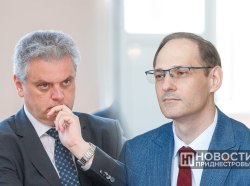Moldova continues to display its animosity and inability to seek a constructive solution to the Moldovan-Pridnestrovian conflict to Pridnestrovie. On the contrary, the events of the last week illustrate a new coil of pressure from Chisinau. Moldovan officials make grand claims calling for a discussion of Pridnestrovian political status on Chisinau terms. At the same time, anti-Russian statements and calls are made to reduce peacekeeping posts in the Security Zone.
This comes against the backdrop of the actual torpedoing of the negotiation process by Chisinau. Moldova does not fulfill its obligations under the agreements already reached. Moldovan officials refer to the agreements under which there are not only their signatures, but also international intermediaries` as a "waste paper". At the same time, there is no unanimous opinion about Pridnestrovie in a divided society in Moldova - some long for its slow absorption, others are afraid of "Pridnestrovialisation of Moldova", others require complete and total surrender of the "separatists".
Out of Touch with Reality
There is still a recent memory of “license plates war”, yet the President of Moldova Igor Dodon boasted about a “serious breakthrough” in the negotiation process and proposed the option of a “political settlement” in the form of some kind of broad autonomy for Pridnestrovie. In particular, he noted that "the problem with the Pridnestrovian license plates has been resolved." Although, Dodon forgot to tell about how Moldova had blocked the Pridnestrovian motorists` freedom of cross-border movement in January. At the same time, the President of the Republic of Moldova did acknowledge that there was a lack of agreement on the Pridnestrovian issue within society.
In response, Tiraspol called on Chisinau to “return to reality”: what kind of political settlement could we have when the Moldovan authorities refuse to fulfill their obligations, publicly disrupted the protocol signing in Bratislava and blocked the search for a compromise. Moldova was advised not to invent non-viable options for a “settlement”, to refuse discrimination and pressure, and to fulfill international obligations to Pridnestrovie.
Hopelessly Undermined Reputation
The lack of political honor has long been a characteristic feature of the country's image in Moldova. The pathological inability to keep its word was demonstrated back to the early years of the Republic of Moldova. Its representatives signed peace agreements several times In 1992, after which RM fighters attacked the Pridnestrovian cities.
“The military operation of President Snegur in Bendery began on the second day after the Moldovan parliament, along with the Pridnestrovian Deputies, approved the basic principles for a peaceful settlement of the conflict. So it turned out that the Deputies of the Chisinau parliament and foreign representatives came under the attack by Moldovan military in Bendery,” Moldovan expert Sergey Tkach writes.
Similar medieval methods are also used in the negotiation process, which did not escape the attention of international mediators. The result is a loss of confidence and squandering of Moldova international credibility.
As the President of Pridnestrovie Vadim Krasnoselsky stated, “he (Dodon) talks about confidence-building measures, resolved issues, but no issues have been resolved, trust is collapsing.”
It is obvious that discussing the political aspects of the settlement with such a partner as Moldova is futile. Chisinau can go back on its words and promises at any time, as has happened more than once.
“Under the conditions of aggressive nationalism prevailing in Moldovan politics, it is clear that the role of the sacrificial lamb in this ritual ceremony of “reintegration” was given to Pridnestrovie and its international project. For this, Pridnestrovie is invited to seat at the table. Yet this is not a negotiation table. There is Pridnestrovie and Pridnestrovians will just be eaten alive without choking on it,” Andrey Safonov, political scientist and Deputy of the PMR Supreme Council said.
It's Time to Change Attitudes
In addition, ethnopsychological differences between the two regions of the former Moldavian SSR were supplemented by socio-economic and political aspects in 30 years. Insurmountable differences in the field of language policy, foreign policy and the choice of the historical path of development should be added to it. If you try to make a common state from such different political communities, you will get nothing but a powder keg.
This is the touchstone of Pridnestrovie’s calls for international partners to accept the reality that has developed over 30 years and make significant adjustments to the position of the international community on the Moldovan-Pridnestrovian settlement.
The expert of the Regional Trends Analytics (RTA) portal Sergey Cheban is sure that today, Moldova has practically nothing to offer Pridnestrovie. One of the reasons is a deep split in the society of the Republic of Moldova both in relation to the history of the conflict on the Dniester and the possible formula for its settlement.
“It is dangerous to start conversations in conditions when in Chisinau they are still radical towards those who were moving apart the warring parties in 1992, as well as their descendants who settled in Pridnestrovie ... In Moldavian society, there is still a high tension and deep gaps in terms of perception of the conflict origins and possible coexistence with the left bank. The clearly disagreeing differences and the lack of a consolidated understanding of recent history do not yet allow us to start a serious discussion about a final settlement with both Chisinau's international partners and Tiraspol. And given the lack of real action to achieve a national consensus regarding Pridnestrovie, they are unlikely to allow it in the foreseeable future,” RTA expert writes.
Inappropriate Behavior
It suffices to look at the recent scandal over the statements of the Minister of Foreign Affairs and European Integration (MFAEI) Aurel Chokoy. His explanations that in 1992 "the Russian army contributed to the armed confrontation demise on the Dniester” caused a storm of indignation among social activists, politicians and participants in the hostilities against Pridnestrovie. A group of Deputies of the RM parliament even demanded his resignation. Outraged by Chokoy’s statement, they say that Russia was allegedly a party to the conflict in 1992, not paying attention to the basic international documents that recognize the Russian peacekeeping role in Pridnestrovie.
Against this background, information appeared about possible provocations in the Security Zone. The Pridnestrovian delegation to the Joint Control Commission (JCC) did not exclude the possibility of them being related to Chisinau’s willing to eliminate certain peacekeeping posts.
Earlier, representatives of Moldova stated that the peacekeeping presence allegedly “provokes indignation among residents of the villages of Koshnitsa, Pyryta, Dorotskoye and Pogrebya”, and warned “to take them up with a pitchfork.”
Such rumors, spread by officials of the Republic of Moldova, seem at least strange. Local residents remember well that only with the advent of peacekeepers did shooting and bloodshed cease. If anyone can threaten those who participate in the most successful peacekeeping operation in history with a pitchfork, these are intelligence agents together with imported nationalist radicals who dream of a “unira” with Romania. Responding to such statements, the Pridnestrovian delegation to the JCC took the initiative to strengthen the contingent of joint peacekeeping forces.
Thus, we are once again convinced that the cold war, which the aggression of Moldova turned into after 1992, is far from over. Moreover, the elites of Moldova, who have been scoring political points using it for 30 years, want it to continue. Under these conditions, Igor Dodon’s reasoning that Pridnestrovie has no future without Moldova is nothing more than the use of the Pridnestrovian factor in the pre-election game, which Moldova cannot get out from for several years in a row. Any attempts to force Pridnestrovie to agree to the conditions of Chisinau are fraught with unpredictable consequences, up to the transition of the conflict into a heated phase. It seems that the international participants in the negotiation process are becoming more convinced of this every day.








